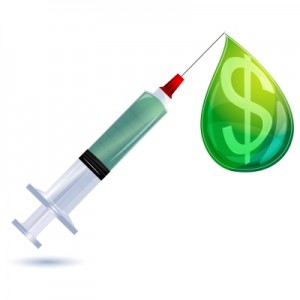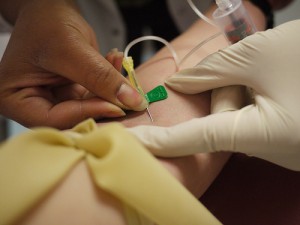Vitamin B12 shots are crucial if you’re diagnosed with extremely low levels of vitamin B12, but they can be expensive. Some medical insurance plans cover the costs of vitamin B12 injections, but only if you qualify. Even if you’re approved, you may not be getting the right dosage to relieve some of the ailments that come with even mild vitamin B12 deficiency.
Intramuscular vitamin B12 shots require the services of a licensed nurse, and to get your fill, your best bet is to apply for coverage from your medical insurance plan.
Unfortunately, healthcare plans such as Cigna, Aetna, and Blue Cross, in addition to Medicare, can make it difficult for you to get enough B12. Their mission is to prevent death from pernicious anemia, and they do that reasonably well…
Still, there are a host of health problems that don’t go away with minimum vitamin B12 shots; constant fatigue, brain fog, and depression can continue if you’re not getting enough vitamin B12 from your healthcare provider.
Aetna
Let’s consider Aetna:
Aetna will pay for vitamin B12 injections if you suffer from:
- Diagnosed pernicious anemia, or other types of anemia
- Gastrointestinal disorders linked with lack of intrinsic factor, vitamin B12 malabsorption or gastrointestinal surgeries
- Neuropathy (nerve damage) from alcoholism, pernicious anemia, or posterolateral sclerosis
- Dementia caused by vitamin B12 deficiency
- Elevated homocysteine levels caused by homocysteinuria
Also, if you have vitamin B12 deficiency caused by medications such as metformin for diabetes, then you may be able to get your insurance to pay for vitamin B12 shots.
But no mention is made of vitamin B12 supplements in relation to symptoms of fatigue, muscle pain, anxiety, depression, or dizziness that occur when vitamin B12 levels are even marginally low, in people who are not diagnosed with anemia.
Also, children with autism are not approved for vitamin B12 injection compensation, even though many parents have noticed extreme health benefits (cognition, energy, and mood) with routine B12 shots.
So unless you’re diagnosed with pernicious anemia, peripheral neuropathy, or dementia that’s not related to old age, you will have difficulty getting your insurance to pay for vitamin B12 supplements. If your employer insurance plan covers naturopathic medicine, then you may be more successful.
Medicare
If you’re a senior citizen, then your risk for vitamin B12 deficiency is much higher. Still, Medicare Part D follows the same criteria for vitamin B12 shots as the Aetna plan.
Unless you can present proof that you suffer from one of the approved medical conditions as mentioned above, you may not get coverage for vitamin B12, even if you are suffering from extreme fatigue, sluggish thinking, mood problems, or other ailments that can happen even if blood tests indicate normal levels of vitamin B12.
Conclusion
If you’re turned down for Medicare or other healthcare compensation for vitamin B12 supplements, then fear not; there are other options.
While vitamin B12 shots can be expensive, costing upwards of $25 a pop, there are alternative methods of vitamin B12 supplementation that are available online and over the counter (OTC). Many are cheaper, gentler, and more convenient than vitamin B12 shots, and just as likely to get absorbed into your bloodstream.
Moreover, if you receive vitamin B12 shots through your provider, but you want more to “top up” vitamin B12 levels between office visits, then OTC vitamin B12 is a great option to get the amount you need, when you need it, at a fraction of the price of prescription B12.
Please tell us…
Does your healthcare provider cover vitamin B12 shots? If so, are you getting enough vitamin B12?
Do you have any questions or suggestions? Please leave your comments below.
Share with your friends!
If you found this article helpful, then please share with your friends, family, and coworkers by email, twitter, or Facebook.
Like this? Read more:
Vitamin B12 Injection Pain- 7 Helpful Tips
Vitamin B12 Shots- Side Effects
Self-Injecting Vitamin B12 Shots- 12 Tips and Warnings
Image courtesy of digitalart/freedigitalphotos
Check out our B12 Patch Giveaways on these links:









